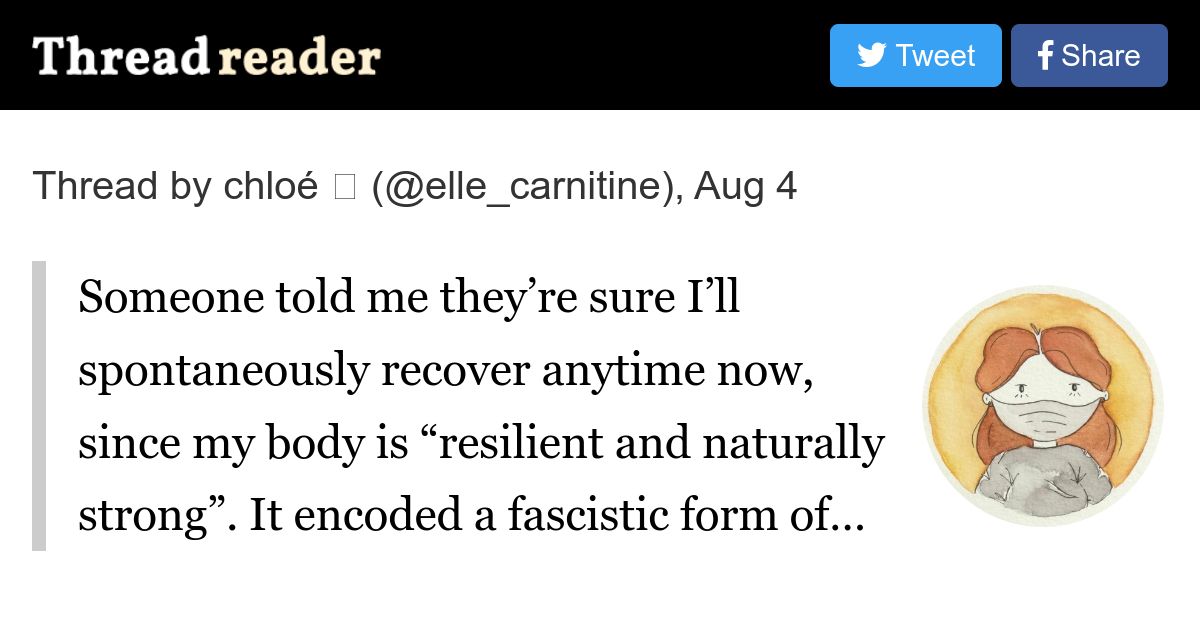Someone told me they’re sure I’ll spontaneously recover anytime now, since my body is “resilient and naturally strong”. It encoded a fascistic form of ableism, which divides people between strong and weak, where the former are invulnerable and the latter are disposable
This person cannot accept that my body is in fact catastrophically non-resilient, and extremely weak, because that would make me worthless and disposable by their own lights, and I am important to them
So, they have to conclude that I cannot really be sick. In their more caring moments they deny the reality of my illness by making baseless claims about recovery; in their less caring moments they threaten to have me sectioned “for my own good”
It’s striking how impatient their approach is. The recovery will be spontaneous. The psychiatric intervention will slap some sense into me. The illness simply cannot be allowed to persist a second longer
Opposing this fascistic form of ableism is absolutely necessary for any kind of meaningful love. This person, despite the fact I am very important to them, has not once expressed any compassion for my suffering since I’ve become sick
In their inability to conceive that I might be both very weak and worthy of care, connection, and community; they have catastrophically and perhaps even irreparably degraded our relationship
Because love, like any project that revolves around the notion of solidarity, requires a profound acceptance of human vulnerability, including ill-health.
Only by truly seeing and accepting where and how we are vulnerable, weak, and needy can we put in place what might protect us and enlarge the scope of our agency and possibility to thrive.
The fascistic impulse towards an ideal of “natural strength”, with the attendant elimination of all those who fail to live up to it, is fundamentally opposed to solidarity, community, and love, and must be detected and opposed everywhere it pops up
In muted forms, this impulse absolutely saturates our current culture. For instance, the idea that the pandemic is over because it “only affects the disabled now” encodes both the invulnerability of the healthy and the disposability of the sick.
Pandemic denialism couldn’t have taken hold so deeply so quickly if this way of thinking didn’t already pervade our collective imaginary, and wasn’t already reflected in our material reality. Let’s continue the work of thinking otherwise.


